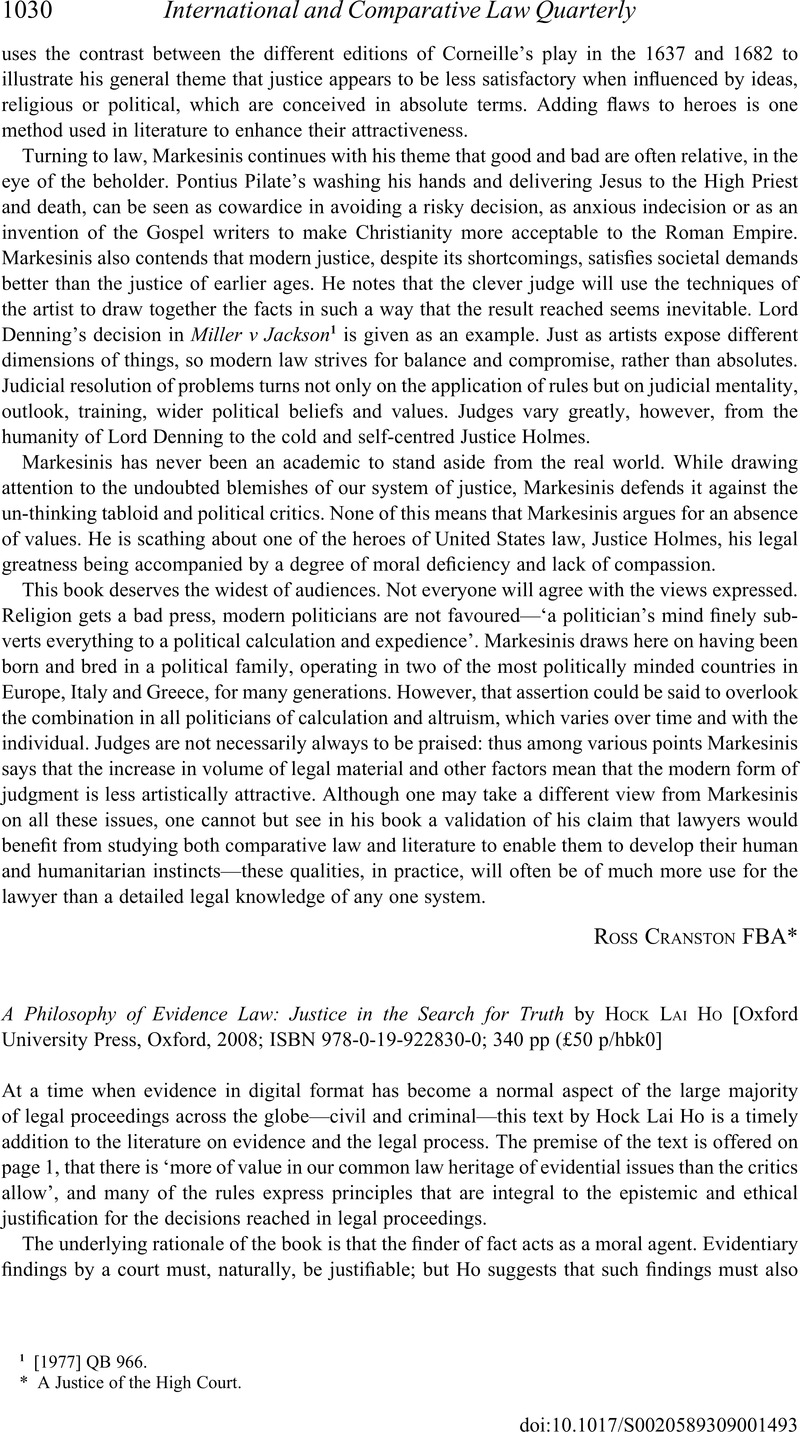No CrossRef data available.
Published online by Cambridge University Press: 21 October 2009

2 Epistemic rationality is discussed in chapter 3. For more on the topic, see R Foley, The Theory of Epistemic Rationality (Harvard University Press, Cambridge, 1987).
3 Docket number CR-04-93292; Superior Court, New London Judicial District at Norwich, GA 21; analysed in great detail in S Mason, (ed), International Electronic Evidence, (British Institute of International and Comparative Law, London 2008), xxxvi–lxxv.
4 Civil Procedure Rules 1.1:
(1) These Rules are a new procedural code with the overriding objective of enabling the court to deal with cases justly.
(2) Dealing with a case justly includes, so far as is practicable:
(a) ensuring that the parties are on an equal footing;
(b) saving expense;
(c) dealing with the case in ways which are proportionate:
(i) to the amount of money involved;
(ii) to the importance of the case;
(iii) to the complexity of the issues; and
(iv) to the financial position of each party;
(d) ensuring that it is dealt with expeditiously and fairly; and
(e) allotting to it an appropriate share of the court's resources, while taking into account the need to allot resources to other cases.